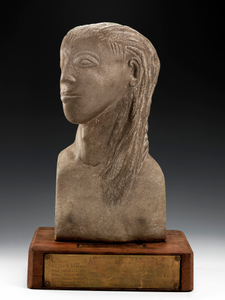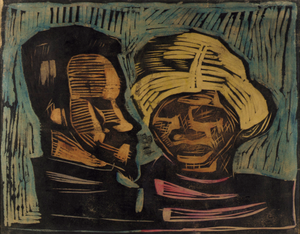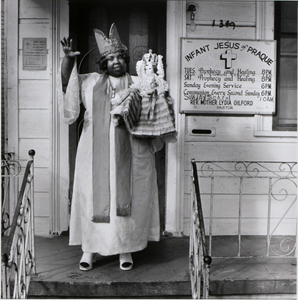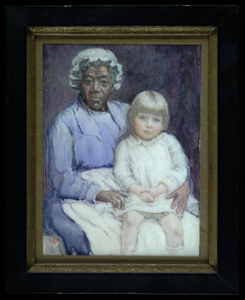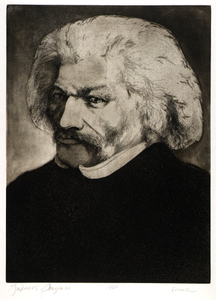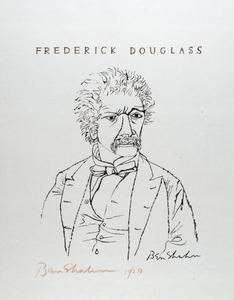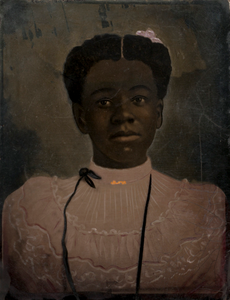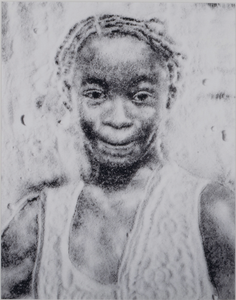unidentified
Description
James W. Washington, Jr., was extremely philosophical, especially in his approach to art. Raised in a deeply religious, African American family in the segregated South, Washington believed he gave life to his stone sculptures through fostering what he called a "spiritual force." He hoped that his art would transcend language, as well as cultural and racial barriers. He dedicated this sculpture, one of his earliest, to his family. He might have seen the figure of a young Ethiopian queen as a symbol of strength and unity, representing not just his immediate family but the African American community as a whole. During the civil rights movement, biblical verses about Ethiopia were used to support the fight for racial equality, particularly Psalm 68:31: "Princes shall come out of Egypt and Ethiopia shall soon stretch out her hands unto God." This idea of a universal equality aligned with Washington's personal philosophical beliefs.
Physical Object
Limestone On Wood Base
Smithsonian American Art Museum, Gift of the artist
